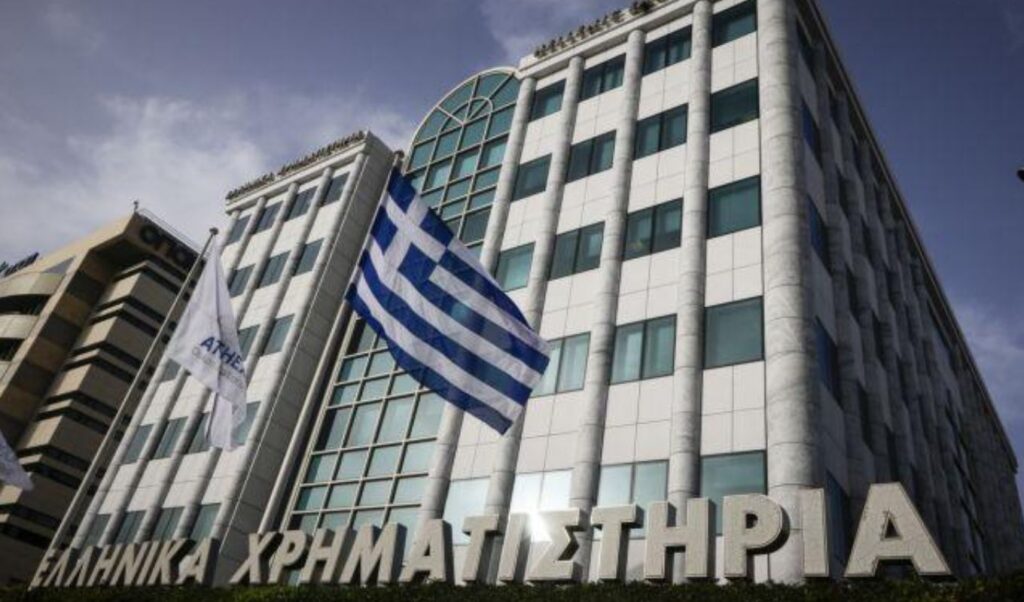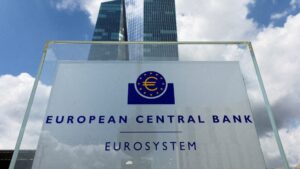The stock market is shaping a particularly positive climate, as it records continuous 15-year highs, maintains a streak of positive returns, and shows enhanced profitability and increased trading. With nine consecutive months of growth, an unprecedented record in the history of the Greek stock exchange, the market displays bull market characteristics. The Greek stock exchange, based on last Thursday’s close, is at the top of the global market ranking for 2025 with gains of 34.86%, while the top three is completed by Seoul (+33.04%) and Warsaw (+32.56%).
The Athens Stock Exchange outperforms major European markets
The Athens Stock Exchange outperforms major European markets (DAX-30 +22.41%, FTSE-100 +9.78%, CAC-40 +5.98%), as well as Wall Street indices (Nasdaq +8.15%, S&P-500 +7.07%, Dow Jones +4.56%). The Greek stock market, despite its rise, remains attractive when considering the market capitalization ratio in relation to Greece’s Gross Domestic Product (GDP). Based on GDP estimates of €240 billion for 2025, market capitalization, which amounts to €130 billion, corresponds to slightly above 50% of GDP.
In a recent analysis, JP Morgan points out that the ratio of moderate returns and low risk justifies an overweight recommendation for the Greek stock exchange. The positive elements also include capital returns from banks (with dividend yields of 10% and share buybacks) and 2% growth. Additionally, banks show a 20% discount based on P/E compared to European banks.
JP Morgan includes Greece in the list of countries presenting major investment opportunities
JP Morgan includes Greece in the list of countries presenting major investment opportunities. For Greece, it notes that it is less exposed to tariff risks, given that tourism is the main export product. The Athens Stock Exchange is among the most attractive in the world, as its capitalization corresponds to 50% of GDP, while elsewhere it moves at 70%, 80% and 100%! The Greek market can attract greater investment interest, the firm emphasizes. The wide discount justifies outperformance.
As noted, the US equity market trades at a P/E above 21 times. Conversely, Greece maintains a positive relative position within Europe’s peripheral framework, with valuation indices of 8.7 times and a 31% discount compared to its long-term average and 31% compared to European markets. Goldman Sachs gives a target price for the General Index at 2,100 units and upgrades Greece to a key destination for international investors in emerging markets, projecting strong returns and attractive valuations, especially in the banking sector.
Greece’s forward P/E is below the emerging market average. The report places special emphasis on the banking sector of Eastern Europe, noting that banks in Greece still have significant upside potential, despite the high returns they have already recorded. Goldman estimates that the Greek market is among the most attractive in the region, as it places the dividend yield at 5%, while for all emerging markets it is 3% and for European regional markets, 2%.
Optima Research maintains its positive stance for the remainder of 2025 and believes the Greek market remains attractive, particularly in the current macroeconomic environment. Corporate developments play a catalytic role, such as Unicredit’s moves with Alpha Bank, Metlen’s with LSE, the EURONEXT agreement with the Athens Exchange, providing momentum. The 2.2% GDP increase in the first quarter, compared to just 0.6% for the EU average, constitutes a supporting factor. It notes that the P/E index has risen to 10, remaining 35% lower compared to major European markets. Foreign net inflows in the first half reached €454.6 million. Trading activity strengthened by 76.8%, with foreign investors representing 61.9%.
The banks
Despite banks’ outperformance since the beginning of the year, international and domestic investment houses renew their vote of confidence in Greek banks. Goldman Sachs sees continuation in the sector’s upward trajectory, supported by strong capital adequacy ratios and reduction of non-performing exposures. Greek banks are among the cheapest and most attractive in Europe, according to UBS.
Bank of America also identifies high upside potential for the shares of the four systemic Greek banks, as their valuations remain lower compared to the European average. Greek banks’ valuation is lower than 7 times their profitability and the price-to-tangible book value ratio (P/TBV) is lower than unity, while for European banks it is higher. The story of loan growth and high dividend yields leads to strong rises in banking stocks, according to Axia Research, which estimates that despite global uncertainties, banks are well-equipped to maintain their positive performance.
Eurobank Equities notes that despite the rally, their valuations remain undemanding. While acknowledging increased geopolitical risks, it sees room for further upward momentum in earnings upgrades and benefits from the potential upgrade of the Athens Stock Exchange to developed markets. The analysis focuses on three key catalysts: positive first-quarter results, strategic acquisition moves, and favorable shareholder return prospects.
Alpha Finance estimates that organic profitability remains at particularly satisfactory levels, as strong credit expansion and positive trends in fee income act as offsets to the negative impact on net interest income due to the lower interest rate environment. According to Alpha Finance estimates, banks have additional capital buffers of approximately €4 billion for future moves, while bank managements now appear more willing to consider acquisition moves aimed at enhancing profitability.




